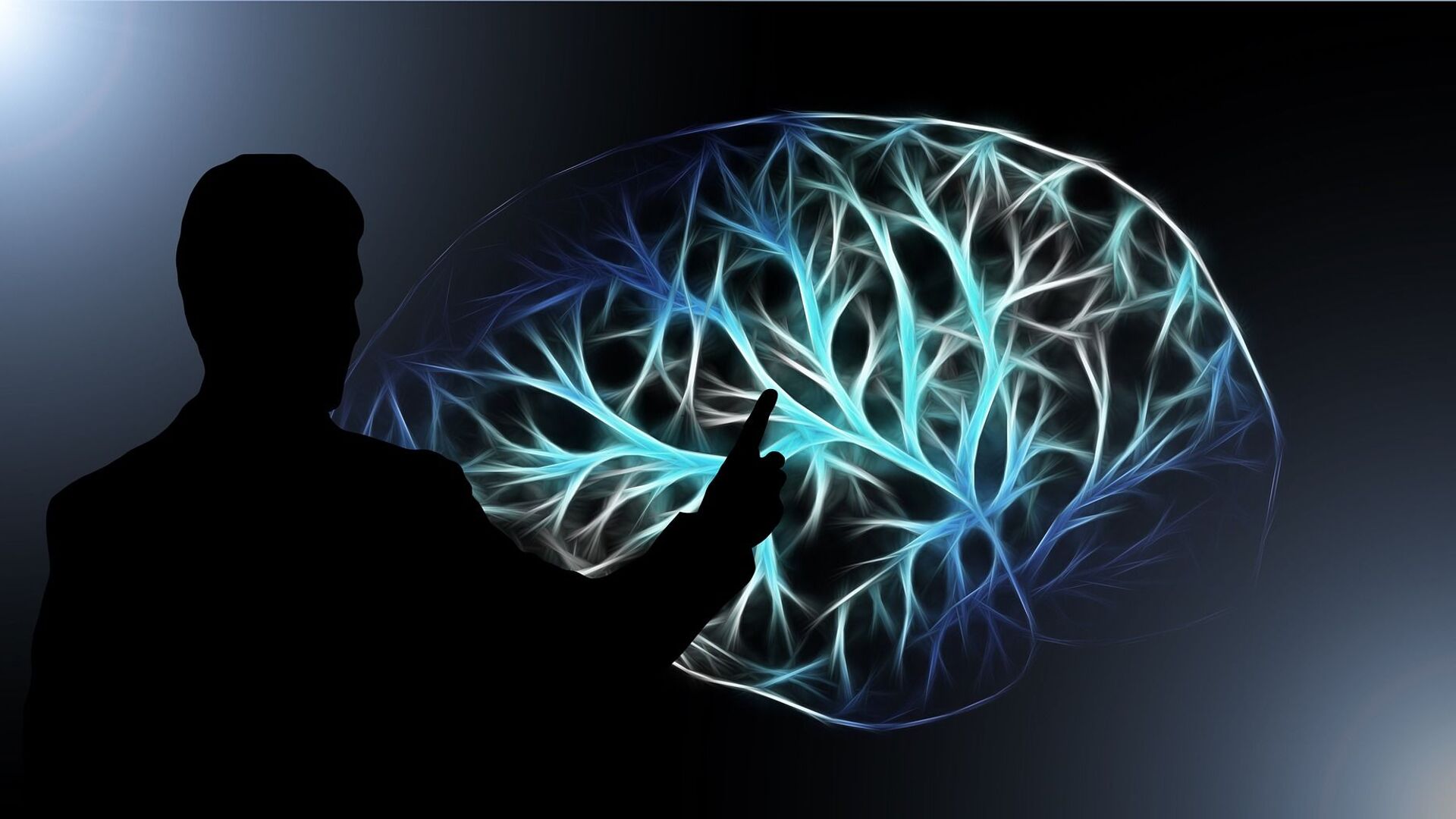https://sputnikglobe.com/20220525/hiv-drug-may-improve-memory-prevent-dementia-study-finds-1095780593.html
HIV Drug May Improve Memory, Prevent Dementia, Study Finds
HIV Drug May Improve Memory, Prevent Dementia, Study Finds
Sputnik International
The HIV treatment maraviroc prevents the creation of a receptor that HIV needs to infect cells. Now, scientists believe they may have found another purpose for... 25.05.2022, Sputnik International
2022-05-25T22:22+0000
2022-05-25T22:22+0000
2022-08-06T13:32+0000
hiv treatment
dementia
memory loss
nature journal
science & tech
https://cdn1.img.sputnikglobe.com/img/07e4/0c/1d/1081594306_37:0:1884:1039_1920x0_80_0_0_1b06d7f183250fc27c215ab627b2168a.jpg
Researchers at the University of California believe they may have found a way to combat memory loss as we age. What’s more, the drug that could make this possible is the widely available HIV treatment maraviroc.According to a new study published in the journal Nature, the researchers discovered that a gene, CCR5, prunes needless memories in our minds but when it was turned off, memory improved. At least, that is the case in rats. The next step will be to begin clinical trials in humans.The gene encodes a receptor that is also used by the HIV virus to enter and infect cells. A drug called maraviroc turns off the receptor, helping patients combat the virus.In studies where mice had that receptor turned off, their memories improved, and that effect was mirrored when middle-aged mice were administered maraviroc.The rats were given an option between going into two cages, with one cage offering a reward. When the CCR5 gene was overactive, they had difficulty determining which cage they should enter. But when the CCR5 gene was turned off, or when the rats were given maraviroc, their memories returned and they picked the right cage.How memories are stored in our brains is not totally understood by scientists. It is believed that memories are stored in groups and linked together. As we age, those connections weaken, and recalling memories becomes more difficult. The hope is that maraviroc could be used in the future to improve memories in middle-aged adults as an early treatment for dementia and to combat the cognitive decline associated with HIV infection.According to The Telegraph, around 40% of people over the age of 65 have some form of memory impairment, though the vast majority do not progress to the point of dementia.“Our memories are a huge part of who we are,” Alcino Silva, professor of neurobiology and psychiatry at the David Geffen School of Medicine at UCLA told The Telegraph. “The ability to link related experiences teaches us how to stay safe and operate successfully in the world.”
https://sputnikglobe.com/20220509/scientists-discovered-cell-stress-that-can-restore-brain-proteins-associated-with-dementia-1095353463.html
Sputnik International
feedback@sputniknews.com
+74956456601
MIA „Rossiya Segodnya“
2022
News
en_EN
Sputnik International
feedback@sputniknews.com
+74956456601
MIA „Rossiya Segodnya“
Sputnik International
feedback@sputniknews.com
+74956456601
MIA „Rossiya Segodnya“
hiv treatment, dementia, memory loss, nature journal, science & tech
hiv treatment, dementia, memory loss, nature journal, science & tech
HIV Drug May Improve Memory, Prevent Dementia, Study Finds
22:22 GMT 25.05.2022 (Updated: 13:32 GMT 06.08.2022) The HIV treatment maraviroc prevents the creation of a receptor that HIV needs to infect cells. Now, scientists believe they may have found another purpose for the drug.
Researchers at the University of California believe they may have found a way to combat memory loss as we age. What’s more, the drug that could make this possible is the widely available HIV treatment maraviroc.
According to a new study published in the journal Nature, the researchers discovered that a gene, CCR5, prunes needless memories in our minds but when it was turned off, memory improved. At least, that is the case in rats. The next step will be to begin clinical trials in humans.
The gene encodes a receptor that is also used by the HIV virus to enter and infect cells. A drug called maraviroc turns off the receptor, helping patients combat the virus.
In studies where mice had that receptor turned off, their memories improved, and that effect was mirrored when middle-aged mice were administered maraviroc.
The rats were given an option between going into two cages, with one cage offering a reward. When the CCR5 gene was overactive, they had difficulty determining which cage they should enter. But when the CCR5 gene was turned off, or when the rats were given maraviroc, their memories returned and they picked the right cage.
How memories are stored in our brains is not totally understood by scientists. It is believed that memories are stored in groups and linked together. As we age, those connections weaken, and recalling memories becomes more difficult. The hope is that maraviroc could be used in the future to improve memories in middle-aged adults as an early treatment for dementia and to combat the cognitive decline associated with HIV infection.
According to
The Telegraph, around 40% of people over the age of 65 have some form of memory impairment, though the vast majority do not progress to the point of dementia.
“Our memories are a huge part of who we are,” Alcino Silva, professor of neurobiology and psychiatry at the David Geffen School of Medicine at UCLA told The Telegraph. “The ability to link related experiences teaches us how to stay safe and operate successfully in the world.”


